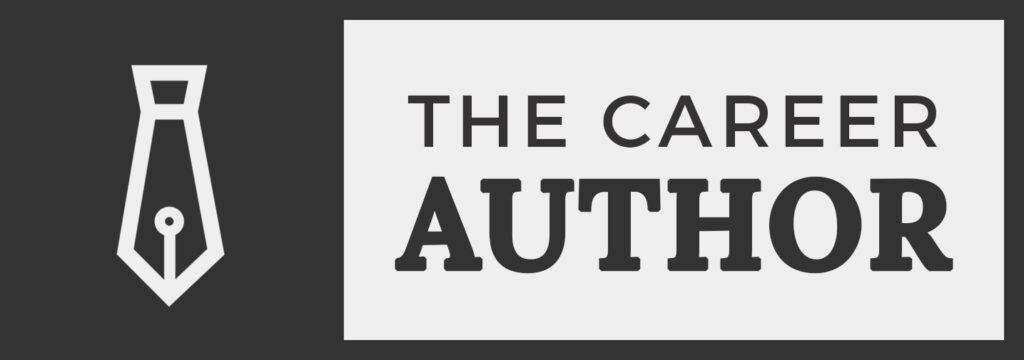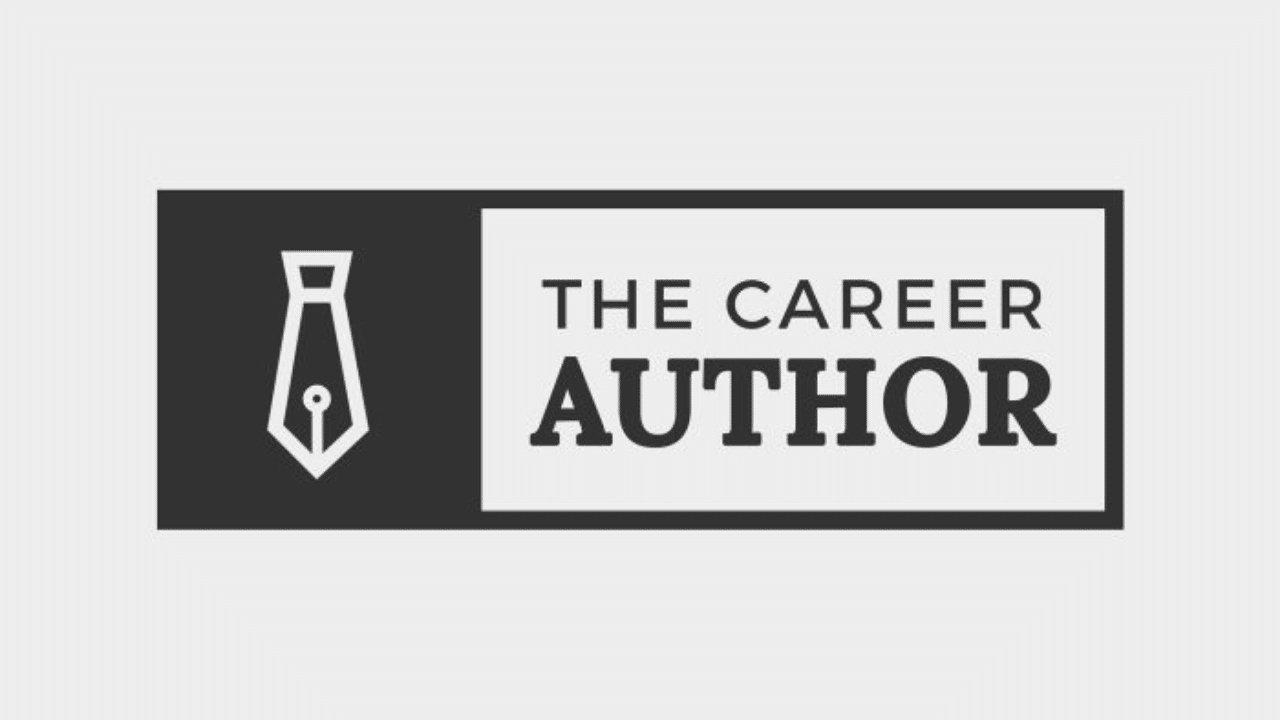The Career Author Podcast is a podcast where co-authors J. Thorn and Zach Bohannon share their struggles and successes as full-time authors, advice for improving your writing craft, and honest discussions of what it takes to build a successful career as an author.
“We all want to write better dialogue,” Zach screamed irritably. Ugh. Clunky dialogue can be the first thing that turns a reader off. Listen in as the guys discuss ways to improve yours.
In this episode, you’ll discover:
- How to use names in a realistic way.
- Why perfect grammar doesn’t always result in perfect dialogue.
- How to use your dialogue as a tool to drive the narrative.
Also, learn how a documentary film and podcast can help you declutter your life.
How do you write and/or revise your dialogue? Comment at thecareerauthor.com.
Thanks to all our new Patrons: Ricky Robbins and Dianna Gunn
Podcast sponsored by Kobo Writing Life – https://writinglife.kobobooks.com
Get exclusive bonus content by supporting The Career Author Podcast on Patreon at www.patreon.com/thecareerauthor
Want to work with us? Get the details at https://thecareerauthor.com/services/
Links:
Minimalism – https://minimalismfilm.com/
Minimalism (the podcast) – https://www.theminimalists.com/podcast/
Zach’s new 1-on-1 mentoring service – http://zachbohannon.com/mentoring
The August Giveaway is up now! – http://www.thecareerauthor.com
The Career Author YouTube Channel – https://www.youtube.com/channel/UCmIYVcr1UdWgSvYpb3Ol3xg
Story Levels – http://www.storylevels.com
Molten Universe Media – http://www.moltenuniversemedia.com
Events – https://thecareerauthor.com/events/


Comments
21 responses to “The Career Author Podcast: Episode 87 – Writing Better Dialogue”
“Morning y’awl,” Chris yawned from his bed whilst waiting for a cup of tea from lovely wifey Denise before she leaves for work. 🙂
“Great hack Zach,” Chris agreed. “Wish I could minimise my lifestyle. Too many books. Also love to minimise my dialogue.”
“Why?” said J.
“Because I like the style of dialogue used in noir crime by the likes of Hammett, Chandler (not that one 🙂) and Leonard.”
“So how do you write dialogue, Chris?”
“I write it as it comes, then I pause for two marching paces, then I read it out loud, then I delete as many words as I can and pause another two marching paces – that’s a military expression for wait a short time. Then I read it out loud again.”
“Cool,” agreed both J and Zach.
“Works for me,” said Chris. “Not sure about my readers.”
“Readers are important Chris,” said Zach.
“Of course you’re right Zach but I’m wondering if I should take advice from the man who invented the dialogue tag ‘he farted’ 🙂.”
“Great show today guys.” Chris reached for his cup of tea.
“Just listened to the minimalist podcast episode 000,” said Chris. “Excellent.”
“Funny,” J. whispered quietly to himself. “British humour, Chris.”
I can’t even respond. Ha! Might be your best comment yet, Chris.
Dialogue is one of my favorite parts of writing. I enjoy it so much that I often catch myself writing unnecessary conversations that I end up cutting when I go back to edit. I agree with Zach that you should only keep conversations that serve the story. Although, I find that all of those cut conversations still help me develop the characters in my head and give me a better understanding of how they would act going forward. So all of that cut content doesn’t go to waste.
Agreed. Revising is always valuable.
I used to write plays for a small theatre troupe – there’s nothing that sharpens your dialogue skills like having to deliver your own lines in public. It’s not quite the same, but the skillset’s transferable, as HR folks say.
I was taught to call the weird dialogue tags ‘said bookisms’, and they make me cringe as a reader. They’re the first step to a Tom Swifty. (You know – ‘He’s sure a great sprinter,’ said Tom swiftly. That kind of terrible not-quite-joke.)
I love that joke!
As I said elsewhere, my big pet peeve has always been seeing a semicolon in dialogue. I have always seen as the writer is trying WAY too hard to be “fancy.” And I also think of Vonnegut and what he said about the semicolon as a whole. “It just shows that you have been to college.”
Totally agree. I almost never use a semicolon.
First off we need to have some kind of like button so I can mash it for Chris. Bravo, sir.
I am currently struggling through having too much dialogue and not enough prose. Learning to pull it back to just enough to move the story along and not have two characters talk the whole book through.
Also The Expanse as a series to talk about in the monthly bonus would be cool.
ta
I’ll have to add that one to my Netflix list.
I m so glad to have come across this podcast series. For a long time I have been working on my debut novel and feeling like it s never going to get anywhere. Consequently, after I finished the first draft I put it away for far too long and lost all motivation to pick it back up. That was until I started listening to So You Want To Be A Writer. I love the casual approach in structure; just two writer friends chatting about what they ve been up to. The author interviews have set me on to a range of new authors that I now follow on social media and I m often found looking up the articles and links referenced in each episode. The podcasts are always full of practical advice, but most of all hearing all the success stories and having weekly access to the topic of writing always motivates me to sit down and write.
This was flagged as spam. So sorry!
Oops. I listen to podcasts in the car where hands free makes it hard to skip over the end of any show. I guess I just have to live with getting those tidbits everyone else misses.
In highschool I had a teacher that taught us said was boring and we should use what I now know as saidism everywhere to make the writing stand out. Now a days I go the other way and use action beats as my main tell on who’s talking.
I’d actually go further on the issue of “correct” grammar in dialogue – I think the deliberate use of poor grammar can be very powerful. I’m from the UK, but writing dialog(ue) for US characters, so I’ve got(ten) around my lack of direct experience by listening to and watching tons of TV series and films set in the US (as most are). I’ve noticed that, aside from accent and specific dialect/slang words, the thing that differentiates characters most is their use of grammar. This is true in the UK as well, of course.
So, my editor is under strict instructions NOT to correct grammar in dialogue unless it’s obvious I’ve made a genuine mistake. Every now and again, I’ll throw in a curve ball like “Nobody don’t done nothin’”, so I can get perverse satisfaction from imagining her having to go for a little lie down to get over it. She’s already on edge since I told her I don’t use the Oxford Comma. I think she’s developing a bit of a twitch…
I avoid using dialogue tags wherever possible, for exactly the reasons you mentioned. I do very occasionally use tags that describe how something is said without needing an adverb – if it’s important. For example, “she whispered”, “he hissed”, “she mumbled”. But only very, very rarely (less than once per book).
Fantastic episode – I love these craft eps. Unless you’re talking about plotting vs pantsing, in which case it’s me that has to go for the little lie down…
When rewriting, I like to have my wife read the part of one person, and I read the other. That also helps to find any missing “context” I forgot to add, such as hand-gestures that might be important. I only do this for key sections that I’m having problems with or concern over clarity/pacing.
A question or two to you guys. I wrote the following rough draft text this morning and just now read it again after listening to the podcast to see how my dialogue compared to what you said. One thing that stood out was I used “said” instead of “asked” in one line which contained a question (albeit kind of rhetorical). In addition, there are three people, but I grouped the dialogue in the same paragraph as the speaker at points which I think clarifies who is speaking. So questions (again, this is all rough draft puke-it-out writing):
1) How do you feel about “said” in place of “asked” when a question is more rhetorical? Or in general, “said” with a question?
2) Do you feel it’s unnecessary to clarify who is speaking (with 3+ people) if it’s in a paragraph where they previously took action?
“Careful of the steps,” Aaliyah said, leading them up the sidewalk. The house sat atop a small elevation with the sidewalk rising every five feet or so with a step. With Aaliyah’s guidance, nobody tripped as they made their way to the front door. Aaliyah opened the screen door, leaned it on her left hip, and turned the doorknob. “Shit. It’s locked.”
“Do you have the key?” Chris asked.
“Probably back at the lab.”
“You didn’t think to bring it?” Eva said.
“I forgot, okay? I just didn’t think about it.”
Eva sighed. She looked behind them and saw the creatures crawling up the yard, some choosing to take the sidewalk and falling over each other and onto the sidewalk as they hit the first step. “We have to find somewhere pretty quick. What about a window?”
I’m ambivalent about said vs. asked. I think both are invisible to the reader.
As long as the conversation clarifies who is speaking, then I think the dialogue works.
Thanks for the comment!
My first time listening to your podcasts. You didn’t get into dialogue for 14 minutes. For me, it’s annoying. Sorry. I skipped over all that beginning stuff by moving my cursor forward. I encourage you to consider starting with your topic and what you plan to cover, what we can expect to learn…etc. THEN, pause for the other stuff.
Otherwise, excellent information!
Thanks so much
Diann
Welcome, Diann! We love new listeners. We appreciate your opinion. We’ve been doing this for many years and we have our own style. Some people will like it and others won’t. Just how it works 😉
Thanks!